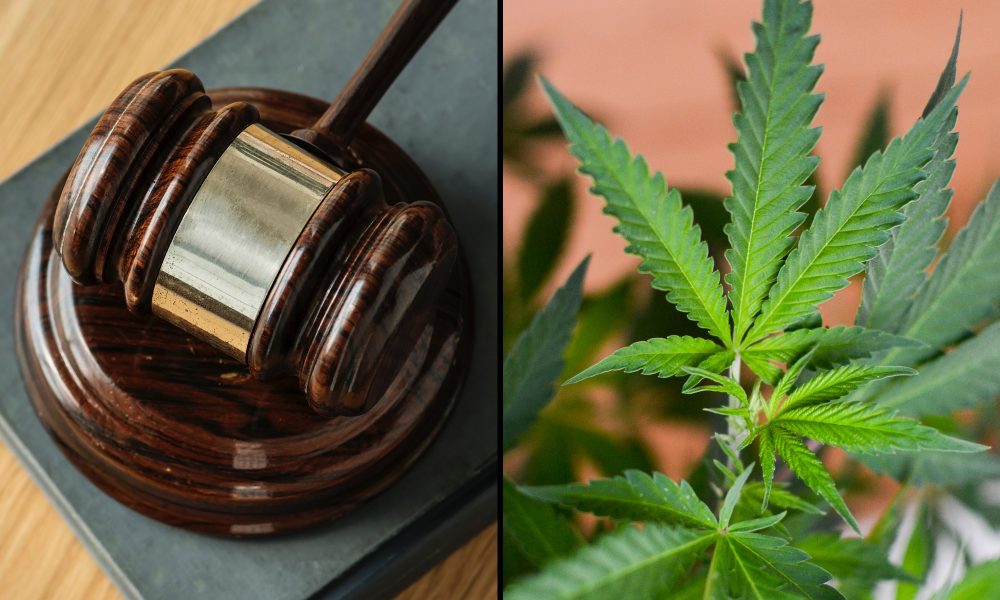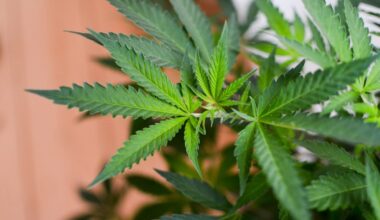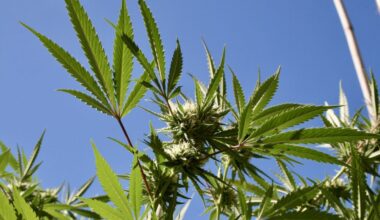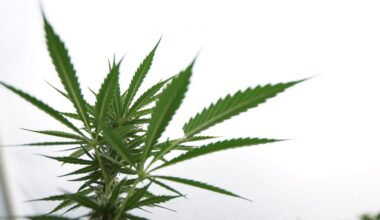President Joe Biden’s judicial nominee for a key federal appeals court has helped to craft a state marijuana legalization ballot initiative and also served in a leadership role for a national cannabis advocacy organization. A Republican senator brought up her work on the issue at a confirmation hearing last week.
Roopali Desai, who was nominated by the president to serve on the U.S. Court of Appeals for the Ninth Circuit, worked on behalf of the Arizona Dispensary Association (ADA) in 2019, meeting with the state Democratic Caucus and Republican leadership “concerning a proposed ballot measure regarding adult-use cannabis in Arizona,” according to disclosure documents filed with the Senate Judiciary Committee.
In a letter supporting the nominee’s confirmation, the president of the Alliance for Justice wrote that Desai was “instrumental in crafting and defending Proposition 207, a voter initiative which led to the legalization of recreational marijuana in Arizona.”
Arizona voters approved that cannabis legalization ballot measure in 2020.
Additionally, Desai served as a member of the advisory board for the National Cannabis Roundtable (NCR) from 2021 to 2022, the disclosure documents show. It’s not clear what she worked on in that capacity—and the disclosure form says the role was uncompensated—but the organization advocates for federal legalization.
Also serving on that board are former Deputy Attorney General James Cole, who authored an Obama-era memo directing federal prosecutors to generally not interfere with state cannabis laws, and former Sen. Cory Gardner (R-CO), who was a leader on marijuana reform issues during his time in the Senate.
Saphira Galoob, executive director of NCR, told Marijuana Moment that Desai was “instrumental in both the passage of Proposition 207 [Arizona’s legalization initiative] and the development of the state’s Social Equity Ownership Program and during her tenure on National Cannabis Roundtable’s Advisory board.”
“She was critical in helping inform our federal strategy, particularly when it came to interacting with Arizona’s congressional delegation,” Galoob said. “We wish her a successful nomination process, and impactful tenure on America’s most cannabis friendly judicial Circuit.”
(Disclosure: Galoob supports Marijuana Moment’s work with a monthly pledge on Patreon.)
During a Senate Judiciary Committee confirmation hearing on Wednesday, Sen. Ted Cruz (R-TX) started his questioning by asserting that Desai has been a “partisan advocate for causes,” including “legalizing potent strains of marijuana.” He didn’t expand on the specific issue, but he asked the nominee how she intends to separate her past advocacy from work as an appellate judge if confirmed.
“I think the role of an advocate is starkly different than the role of a judge. As an advocate, you start with a position—you’re duty-bound to zealously advocate and represent your client and their interests,” the nominee replied before being cut off by Cruz, who pressed her on school choice issues and again asked how she would set aside her personal views on the bench.
Watch the exchange between Cruz and Desai, starting around 1:17:10 into the video below:
“Senator, I am committed to following the law objectively and without interjection of any of my own personal or political views in any case that is presented before me if I’m so fortunate to be confirmed,” she replied.
Cruz’s emphasis on Desai’s work to legalize “potent strains” of cannabis seems to be related to news coverage on the Arizona ballot language that was also cited in her disclosure documents. The campaign’s initiative prevented state regulators from banning edibles containing up to 10 milligrams of THC per serving. It also authorized health officials to increase the THC limit.
“If [the Arizona Department of Health Services] decides in its discretion it wants to make things more potent, which I doubt they will do, they can always do that,” Desai said in a 2019 article. “But they can’t make it less potent.”
In another interview that year, Desai talked about how the Smart & Safe Arizona campaign had consulted with legislative counsel on the initiative so that activists could “run the best piece of legislation for Arizonans at the ballot.” She said the the conflict with federal prohibition was something the campaign acutely understood and discussed with legislative counsel.
Judicial nominees are frequently asked about past advocacy work and political affiliations during the confirmation process, and Desai’s response on Wednesday aligns with how most respond, by saying she would fairly apply the law as a judge regardless of her personal views.
To be sure, just because she was involved in efforts to end prohibition, there’s no reason to expect that she’d proactively advocate for reform as a non-partisan judge, but the Ninth Circuit has historically been faced with major drug policy-related cases, and Desai could play a key role in future legal disputes over cannabis and psychedelics if she is confirmed.
Matt Zorn, an attorney with extensive experience with federal drug litigation in the appeals court, told Marijuana Moment on Friday that “one of the biggest obstacles in the cannabis industry today, from a legal standpoint, is a judiciary that isn’t acclimated with the industry.”
“Nearly all federal judges are top lawyers, and most have open minds. But sometimes, it is difficult to fully appreciate an issue without having seen it first hand,” he said. “Having an appeals court judge with a clear background in understanding the legal issues faced by the cannabis industry is a boon.”
Judges on the court previously heard testimony in a case challenging the Drug Enforcement Administration (DEA) over its decision to deny a doctor access to psilocybin to treat terminally ill patients under “Right to Try” laws. While it ultimately dismissed the lawsuit for procedural reasons, attorneys say they intend to raise the case again if DEA confirms that its denial constituted a final rule.
Last year, a panel of the court dismissed a petition to require DEA to reevaluate marijuana’s scheduling under the Controlled Substances Act (CSA). But one judge said in a concurring opinion that the agency may soon be forced to consider a policy change anyway based on a misinterpretation of the medical value of cannabis.
In May, the court issued an opinion in another case concerning the implications of federal hemp legalization, finding that the change in statute meant that delta-8 THC that’s synthesized from hemp-derived CBD is federally legal.
While advocates would generally welcome having judges on the court who understand the legal underpinnings of cannabis policy, particularly those with a background in reform advocacy, it’s not exactly an expectation that Desai would help advance legalization as a federal appellate judge that’s brining attention to the nominee. Rather, it’s the fact that Biden made the appointment of a person with a pro-legalization background in the first place.
The president did campaign on yet-unfulfilled pledges to decriminalize marijuana, reschedule the plant and expunge past convictions, but he’s maintained a staunch opposition to adult-use legalization. Of course, Desai’s resume isn’t centered around cannabis reform, but his selection of someone who actively worked to enact a policy he opposes is notable.
Biden Says He’s ‘Working On’ Fulfilling Marijuana Campaign Pledge To Free Prisoners
Photo elements courtesy of rawpixel and Philip Steffan.
Medical Disclaimer:
The information provided in these blog posts is intended for general informational and educational purposes only. It is not a substitute for professional medical advice, diagnosis, or treatment. Always seek the advice of your physician or other qualified healthcare provider with any questions you may have regarding a medical condition. The use of any information provided in these blog posts is solely at your own risk. The authors and the website do not recommend or endorse any specific products, treatments, or procedures mentioned. Reliance on any information in these blog posts is solely at your own discretion.







